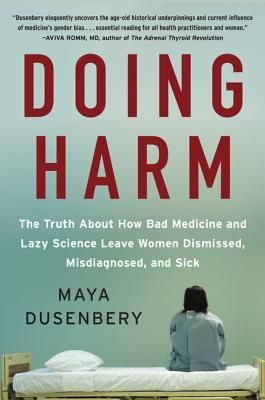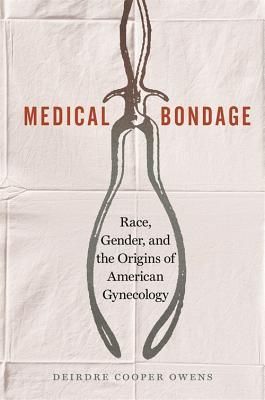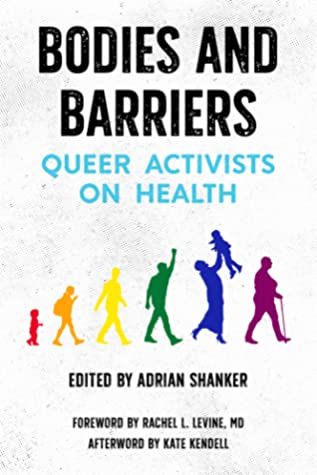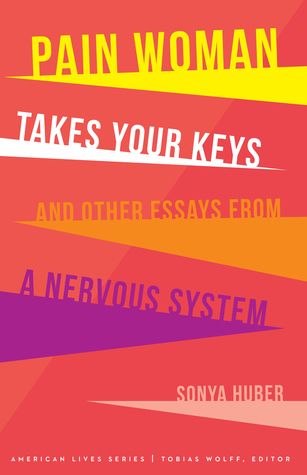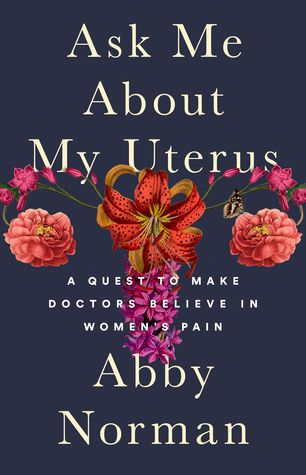By Leah Rachel von Essen
Book Riot
October 15th, 2020

It is nearly impossible to get fair, unbiased healthcare in the United States unless you are a cis white male—and even then, the gender bias and disparity can hurt you. These books explore the bias in medicine against women, including information on the intersections with fatness, queerness, Blackness, and more. I have worked hard to read a wide variety of books in this field so that I could recommend you only the best, leaving out those that have misinformation or transphobic language. This is not to say this list is perfect, by any means, and I would love to hear any further recommendations or feedback.
Doing Harm: The Truth About How Bad Medicine and Lazy Science Leave Women Dismissed, Misdiagnosed, and Sick by Maya Dusenbery
I believe that Dusenbery’s book is the best place to start when digging into this topic. It’s accessible but packed to the brim with information about how medicine is failing women—whether it’s the lack of research into diseases that disproportionately impact women, lack of research into ways that heart disease and drugs impact people who aren’t cis men, or the way that doctors doubt the credibility of non–cis male patients. Dusenbery fits an incredible amount of information, research, and analysis into just 318 pages, touching on racism, fatphobia, mental illness, and more, as well as describing the bias around a variety of illnesses including Lyme, heart disease, and POTS. This is an informative and vital read for any feminist, as well as a call-to-action for the medical community to do better.
The Seed: Infertility is a Feminist Issue by Alexandra Kimball
Kimball’s short book is a necessary text outlining the intersectional feminist issue of infertility. She explains carefully its intersectionality—the language that codifies motherhood or the womb as a key and necessary obligation to be a woman hurts trans people, gender-noncomforming people, infertile women, and anyone who is unable to “easily” or “naturally” have children; and she details the struggles people face as a result of these biases. Kimball outlines the need for feminism to reclaim infertility and its complex issues as a call-to-action, showing how feminism’s focus on the right to not be a mother has led to a failure to defend, or even a movement to criticize, women who are infertile and want children, and the support system, resources, and medical system that will help them become parents.
Medical Bondage: Race, Gender, and the Origins of American Gynecology by Deirdre Cooper Owens
This is a must-read. The history of bias against Black women’s bodies and the racist past and present of the medical system damage the healthcare opportunities for women of color today. Owens outlines the birth of gynecology and the hypocrisy of doctors in both depending on and yet disregarding and disrespecting the bodies of Black women to advance the field. These doctors used Black bodies to learn how to heal white bodies, even training Black women as nurses, and yet refused to acknowledge their bodies or minds were equal. Owens also brings in the experience of poor Irish women as another example of an exploited group biased against and used for experimentation. This book is excellent for outlining the contradictions and hypocrisy of racism in the medical field, which is vital in a world that continues to endanger Black women in medical spheres, including when it comes to their reproductive health.
Sex Matters: How Male-Centric Medicine Endangers Women’s Health and What We Can Do About It by Alyson J. McGregor
McGregor’s personal and professional experience as a physician in the emergency room, associate professor of emergency medicine, and cofounder and director for the Division of Sex and Gender in Emergency Medicine all contribute to the deep scientific roots of this book, complemented by a conversational style. Her book focuses on giving women actionable tips for how to advocate for themselves in the medical space, prioritizing informing you on everything from the disproportionate risks and unknowns of trans people and women of color to the threats of lack of research into drug impacts on women—from QT intervals due to drug interactions to generic drugs’ side effects. I’ve already used the recommended language and questions she provides in the back to press my doctor for more information.
Bodies and Barriers: Queer Activists on Health Edited by Adrian Shanker
This book gathers 26 essays that discuss and analyze the unique health challenges that LGBTQ+ people experience and are forced to deal with throughout their lives—spanning from birth to old age. Subjects include binding, informed consent for intersex people, the difficulty of family planning, issues specific to trans women and to bisexual people, increased cancer risks in LGBTQ+ people, the increased risks of tobacco use in queer communities, and housing and health for older LGBTQ+ adults. The essays gathered are carefully researched, and provide both insights and solutions for how to make our healthcare system more accessible for queer people.
Just Medicine: A Cure for Racial Inequality in American Health Care by Dayna Bowen Matthew
Matthew uses her platform in this book to present not only the role of implicit bias in keeping adequate health care out of reach of minority patients, with a focus on Black patients in particular, but also to present a solution. Analytical and carefully researched, this is a great book that presents legal and public policy solutions to health disparities through a radical transformation of how the medical community thinks about health, and through recommendations for legal argument and enforcement to protect Black patients. This book is focused on race specifically, and these issues will help readers think critically about the intersectional experience of Black women and how implicit bias weighs on them at every point of the medical cycle.
The Collected Schizophrenias by Esmé Weijun Wang
Wang’s essay collection centers on her experiences being diagnosed and living with schizoaffective disorder: from the stigma and fear leveled against “the schizophrenias” within the medical, general, and even the mentally ill communities to the traumas of being involuntarily treated and committed, or of being forced into taking leave from Yale and encouraged not to return. Wang’s experience as a chronically ill woman sheds light on many of the issues within the medical system and within our society itself. She writes about what it means to be “OK,” patients’ rights and what consent and autonomy looks like in the presence of psychosis, and many more complex nuances, fears, and questions. In addition, Wang’s essays shed light on a disorder that is commonly feared and stigmatized, demystifying it and dispelling misconceptions.
Invisible: How Young Women with Serious Health Issues Navigate Work, Relationships, and the Pressure to Seem Just Fine by Michele Lent Hirsch
Hirsch’s book focuses specifically on young women and the issues they face when they become seriously ill. Doctors tell them they’re too young to have certain conditions, or that they “look great”; they become isolated or feel pressure to “power through” and not burden the young people around them by admitting to struggling; it harshly impacts their careers by cutting in at crucial early points. Hirsch is excellent at highlighting the ways these issues disproportionately impact people of color, trans people, non-binary people, and other queer or different identities, especially in the realm of fertility and who “can” or “should” have children. Hirsch herself is a queer woman who has faced serious health issues and disability, and here she has created a book that is well-written, personal, and complex.
Pain Woman Takes Your Keys, and Other Essays from a Nervous System by Sonya Huber
In this lyrical collection of essays, Sonya Huber writes about her experience with rheumatoid arthritis and her struggle with chronic pain. She writes, often with humor or with the touch of poetry, about pain scales and the issues with preaching “gratitude”; about her fraught relationship to her cane, about pain-sex, about pain selfies, about the broken system of health-care. Huber writes about how our capitalist society insists with commercials and medications and ideology that every problem must have a fix, and how that hurts those who are struggling; about how she struggled with both internalized and external pressures of the patriarchy as she worked to shift her own conceptions of motherhood, vulnerability, and work ethic. The collection is enlightening, engrossing, and emotional.
Disability Visibility: First-Person Stories from the Twenty-First Century edited by Alice Wong
Wong’s collection encompasses everything from a testimony to Congress to personal essays to a eulogy; it touches on the intersections of disability with Blackness, queerness, and more. Jeremy Woody describes the isolation and pain of being deaf in prison. Sky Cubacub discusses what it would mean to be “radically visible”. Writers discuss asexuality, climate change, harassment, abuse, and more through the perspective of disability. This collection is very readable, and for the sheer number of perspectives it contains, it is surprisingly compact. It presents arguments and introduces discussions that will help readers confront their own ableist assumptions, celebrating disability culture and presenting hopes and challenges for the future, and help readers shift to a more radical approach in their thinking and their activism.
Ask Me About My Uterus: A Quest to Make Doctors Believe in Women’s Pain by Abby Norman
Abby Norman’s book was the first of all of these that I read, and it haunted me. Equal parts horror story and call-to-action, Norman had to drop out of college due to her pain, and yet she spent years begging doctors to take her seriously. She was forced, in the end, to take research into her own hands, fighting a daily battle for answers, before getting a diagnosis of endometriosis. Even there, it wasn’t the end. Norman touches on stories, studies, and overarching failures of healthcare throughout her own story—from the failure of doctors to care about women having pain during sex, to the impulse of doctors to save a woman’s fertility above all else, to the gender differences in whether doctors believe your symptoms and the level of your pain.


